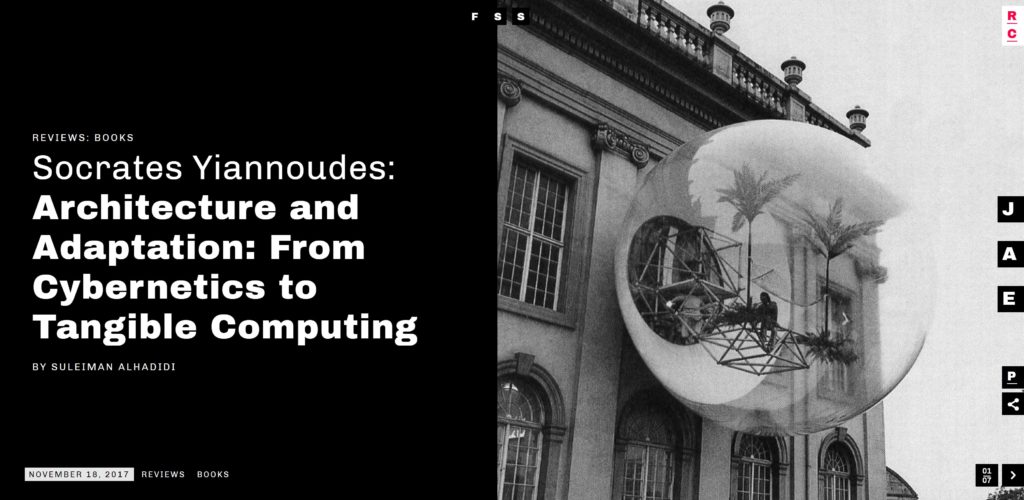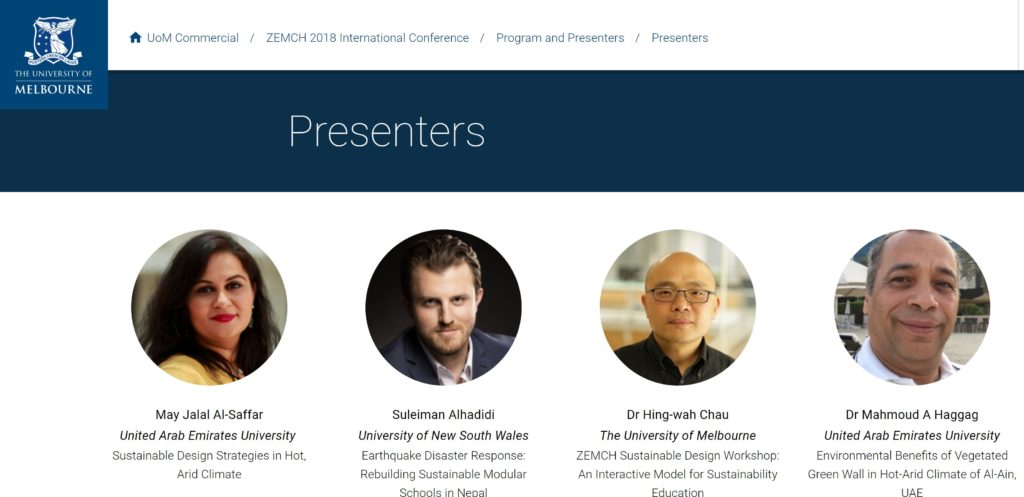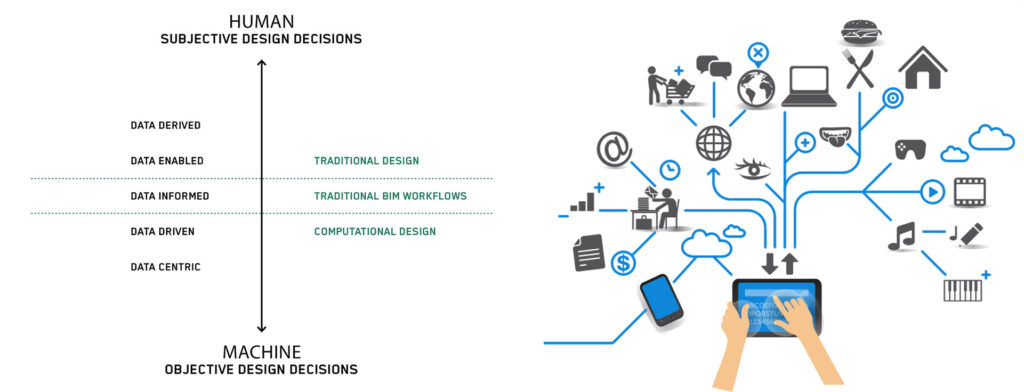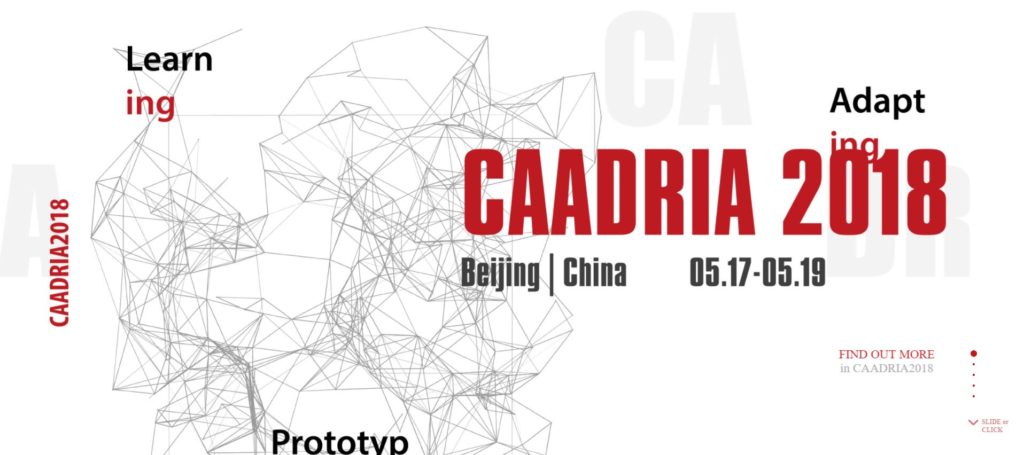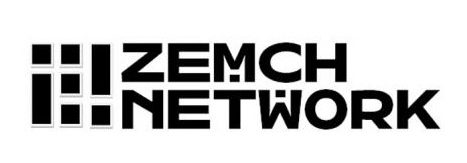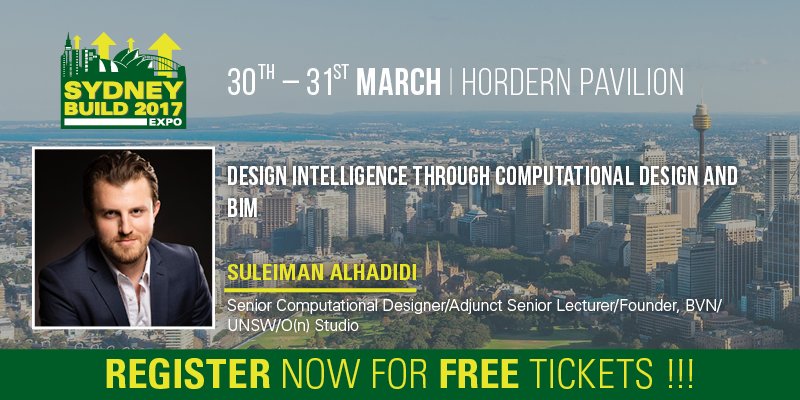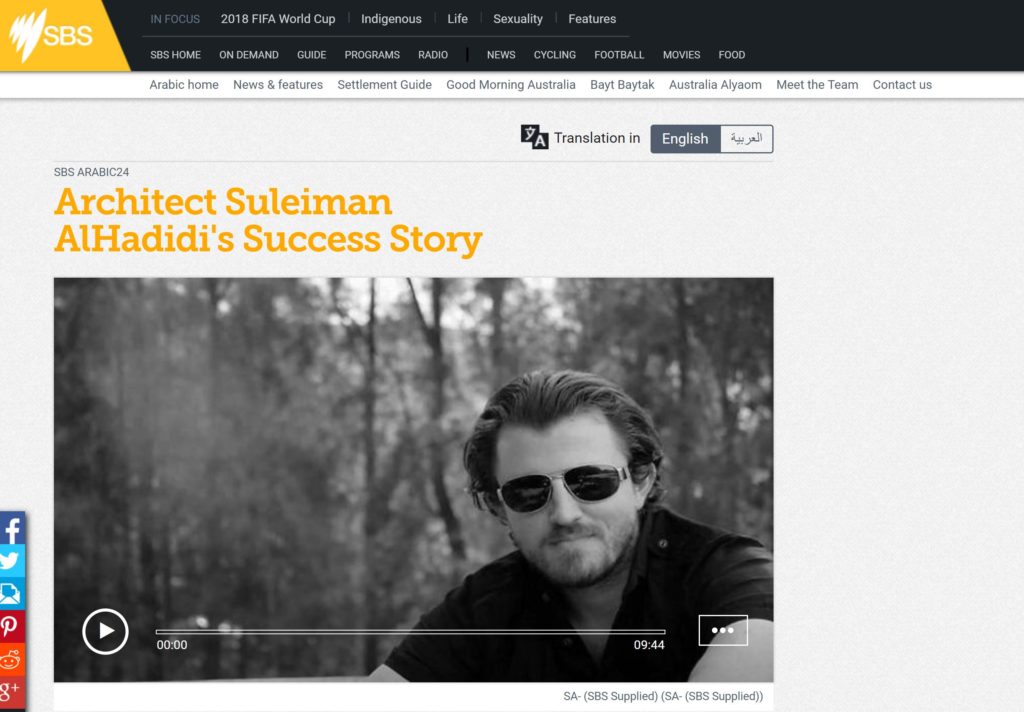October 19th 2023
Keynote: Building Tomorrow's Cities: Unleashing the Power of Smart Urban Developments and Sustainable Architecture
[Amman, November 8th 2023] — The 11th International Conference of the Arab Society for Computer Aided Architectural Design (ASCAAD 2023) is proud to announce that Suleiman Alhadidi, Doctor of Design, Harvard University, will be delivering the keynote lecture at the event. The conference is scheduled to take place on-site at the University of Petra (UOP) in Jordan.
About ASCAAD 2023:
The 11th International Conference on Computer Aided Architectural Design, organized by the Arab Society for Computer Aided Architectural Design, brings together architects, researchers, and industry professionals from around the world. The conference serves as a platform for the exchange of ideas and knowledge, fostering collaboration and innovation in the realm of computer-aided architectural design. ASCAAD 2023 will take place at the University of Petra in Jordan, providing a unique setting for the exploration of cutting-edge developments in architecture and technology.

Suleiman Alhadidi- Building Tomorrow's Cities- Unleashing the power of smart urban developments and sustainable Architecture
August 1st 2023
Keynote: Real-time Architecture
[Amman, August 1st 2023] —Dr. Alhadidi is set to deliver a keynote talk titled "Real-time Architecture" at Hussain Technical University on Tuesday, 1st August. The event, organized in collaboration with the university's Architecture Department, will take place at King Hussain Business District and will delve into topics surrounding smart buildings and real-time architectural advancements.
The keynote address is anticipated to cover a spectrum of subjects, including the latest research findings and projects spearheaded by Suleiman in the realm of real-time architecture. With an illustrious background that includes affiliations with Harvard University, particularly the Graduate School of Design (GSD), Suleiman brings a wealth of knowledge and experience to the forefront of architectural innovation.
This event presents a unique opportunity for students, academics, and professionals alike to gain insights into the evolving landscape of architectural design, especially in the context of real-time technologies. Attendees can look forward to an engaging dialogue that transcends traditional boundaries, exploring the intersection of architecture, technology, and innovation.

Real-time Architecture - Keynote at Hussain Technical University- Amman, Jordan
November 30 2022
Invited Talk: Suleiman gave a talk at CoreNet BOSTON + Beyond arranged by MIT Center of Real Estate about "Understanding the workplace of the future", invited speakers include Dominic Endicott from Northstar Ventures, Sarah Abrams from Iron Mountain, Kay Sargent from HOK, Paolo Santi from MIT Senseable City Lab, and Halle Thomas from Millennium Partners.
About: What's the Big Idea? No really, what is it? Blockchain or burnout? Analytics or Automation? Digital Currencies, Disruptive Technologies, Quantum Supremacy, the future of work – in this place, that place or the other, conducted by robots or humans, aided by AI, or individuals autonomously. Will economies fold in on themselves, be replaced by new types of work, industry, needs? Will issues of equity become exacerbated or will the underserved flourish. We’ll discuss these issues, talk transportation, urbanization, infrastructure, and dialog, all while having Aha! moments. We will leave better prepared to fortify our businesses, communities, and ourselves for what is to come.

Guest talk at CoreNet Boston, MA, In collaboration with MIT Center of Real Estate
August 25 2022 : AKAN Symposium
Invited Talk: Suleiman will be giving a talk at AKAN Symposium arranged by Hanyang University Seoul, Korea and UNSW, Sydney, Australia. The talk is titled "Real-time Decision Making in The Design and Operation of Adaptive Buildings"
Abstract: The recent socioeconomic changes in the way we work and live are forcing the design and construction industries to reevaluate their methods of designing and operating buildings. As buildings are becoming more flexible and adaptive, we need to rethink how we quantify spaces' needs to change in shorter timeframes. This talk describes a novel way in decision-making based on real-time data during the design and operation phases of the buildings. Suleiman will discuss the emerging trends and the opportunities for adaptive buildings based on his current practice and research work at Harvard and MIT universities.

July 12 2019
Keynote: Suleiman will be giving a keynote talk at HTU conference 2019 next month in Jordan. He will be talking about the future of buildings and cities from data-driven design and application. This talk will feature the work that he have been involved with at City Science Group -MIT Media Lab and other previous research and practice projects. In his talk, he will project some light on the conference theme STEM 4 and the Jordanian Context. The talk is titled "Data Intelligence for People Centric Buildings and Cities"

April 09 2019
Award: Suleiman was announced as a recipient of Harvard University, Gradate School of Design Real Estate fund for 2019-2020 to conduct his research on way to provide affordable housing for young professionals in tier 01 cities. through a rigorous implementation of mixed-use developments of micro-units and co-sharing spaces and the potential of converting one to another, the proposed research will test the viability of implementing robotic architecture and furniture as means to reduce space needed for conventional work and live spaces and the financial metrics associated with this approach.

July 23 2018
Award: We are happy to announce that Suleiman was named an American Australian Scholar and Ambassador for the year of 2018-2019. Suleiman's research at Harvard University focuses on adaptive smart buildings. Being a multidisciplinary advocate of architecture, computation and engineering, he aims to build transformable facade systems using soft robotic technologies. By utilizing machine learning techniques, the research would allow end-users personalize their buildings and create more sustainable built environment.

June 01 2018
Joining the City Science Lab at the MIT Media Lab to collaborate on few projects: We are investigating how new models for urban architecture and personal vehicles can be more responsive to the unique needs and values of individuals through the application of disentangled systems and smart customization. We are developing technology to understand and respond to human activity, environmental conditions, and market dynamics. We are interested in finding optimal combinations of automated systems, just-in-time information for personal control, and interfaces to persuade people to adopt sustainable behaviors.


May 20 2018
Scientific Committee for ACADIA 2018: Suleiman was invited to review part of the papers for Association for Computer Aided Design in Architecture conference. ACADIA 2018 Mexico City aims to re-calibrate the discourse of computational design research. Recent developments within the socio-political environment having placed new stresses on international discourse, an inflection point has been reached, provoking a renewed focus on alternate modes of thinking, designing, programming, making, and interdisciplinary cooperation within architectural research and production. This situation presents a unique opportunity to revisit different global questions, benefiting the local community by bringing ACADIA and its history of commitment to computational design research, while at the same time providing a different vantage point from which to re-examine the topics the conference has explored from its inception. This conference provides a platform for experimentation in imprecision, and the breaking of the norms that define fidelity within contemporary architectural research and practice.

May 18 2018
Book Publication: Learning, Prototyping and Adapting: Rapidly evolving technologies are increasingly shaping our societies as well as our understanding of the discipline of architecture. Computational developments in fields such as machine learning and data mining enable the creation of learning networks that involve architects alongside algorithms in developing new understanding. Such networks are increasingly able to observe current social conditions, plan, decide, act on changing scenarios, learn from the consequences of their actions, and recognize patterns out of complex activity networks. While digital technologies have already enabled architecture to transcend static physical boxes, new challenges of the present and visions for the future continue to call for both innovative responses integrating emerging technologies into experimental architectural practice and their critical reflection. In this process, the capability of adapting to complex social and environmental challenges through learning,prototyping and verifying solution proposals in the context of rapidly shifting realities has become a core challenge to the architecture discipline. Supported by advancing technologies, architects and researchers are creating new frameworks for digital workflows that engage with new challenges in a variety of ways. Learning networks that recognize patterns from massive data, rapid prototyping systems that flexibly iterate innovative physical solutions, and adaptive design methods all contribute to a flexible and networked digital architecture that is able to learn from both past and present to evolve towards a promising vision of the future.

May 15 2018
Winning 3 GOLD MEDAL PRIZES from Good Design Awards :we won 3 GOLD MEDAL PRIZES from Good Design Awards for our project NEPAL Prefab Schools which Suleiman led its early initiative. the categories are : Social Impact, Engineering, and Architecture #Winningdesign #Nepalprefabschools #Architectureaward #GOLDMEDAL#3AWARDS #NEPALREBUILDPROGRAM #SocialImpactaward#engineeringaward

April 16 2018
Invited lecture: Suleiman gave a lecture on computational design and Building information modeling processes to Unsw CoDe students via Skype with a 14 hours difference . The talk focused on examples and case studies on form finding, data driven design, and environmental design and analysis. The presentation introduced how to quickly unlock the potentials of innovation in BIM by using design scripted tools. It also provided some insights on how such workflows can generate dynamic designs without endless nights of rework and redundant repetition. The lecture was focused on the advancement of data-driven design in architecture and computational design.

January 31 2018
Conference paper presentation (ZERO ENERGY MASS CUSTOM HOME NETWORK 2018 Melbourne, Australa): This paper outlines a kit-of-parts school design that was developed in response to the emergency infrastructure needs in the aftermath of the Gorkha earthquake. Light-weight steel frames and panelling system that incorporates contemporary seismic design principles was designed through a collaborative partnership to assist in the aid response and facilitate with the rebuild of essential infrastructure and facility needs. Able to be constructed and implemented by the local community, an open-source modular design prototype facility is in the process of being constructed in the region. This paper discusses the design process and construction methods utilised to develop a prefabricated school structure suitable for seismic areas, and the challenges that were faced to develop a novel disaster response construction process. The paper aims at providing insights into sustainable prefabrication methods that can be utilised to efficiently, quickly and cost-effectively deliver school buildings and community infrastructure needs in remote and post disaster contexts.
November 20 2017
November 17 2017
November 01 2017
Suleiman has joined the Material Processes and Systems (MaP+S) Group at Harvard University, School of design, for more information about the group state of the art work check this link
October 31 2017
Award: Suleiman was awarded 1st prize award at the latest Augmented Reality and Virtual Reality Hackathon that was conducted at the MIT Media Lab, Massachusetts Institute of Technology, Boston, USA. The Hackathon which was titled "DESIGN TOOLS OF THE FUTURE: Immersive & Interactive" aimed at foster an interdisciplinary environment for proposing strong innovative solutions to the future ...
October 30 2017
Paper accepted: Real-time Architecture abstract was accepted at CAADRIA 2018 conference in Beijing, China; "Through academic and practice case studies, this paper aims at drawing a framework of teaching and designing real-time data-enabled building envelopes which are controlled by data inputs. It will project insights on the theory of cybernetic and adapting architecture where geometry and building components can change to allow better performance in real-time. With a focus on building envelops, this paper discusses the challenges of end user and post-occupancy real-time architecture."
September 28 2017
September 05 2017
August 08 2017
Invitation: Suleiman was invited to join CAADRIA 2018 conference Paper Selection Committee (PSC). CAADRIA; The Association for Computer-Aided Architectural Design Research in Asia provides a platform for CAAD-related academics and professionals to share experiences, best practices, and results in education and research in Asia and beyond. CAADRIA 2018 will be held in Beijing, China.
June 17 2017
Invitation: Suleiman was invited to take part of the peer reviewing team for ACADIA 2017 conference at Massachusetts Institute of Technology, ACADIA (The Association for Computer Aided Design in Architecture) is an international network of digital design researchers and professionals. It facilitates critical investigations into the role of computation in architecture, planning, and building science, encouraging innovation in design creativity, sustainability, and education. For mote information about the conference refer to this link
May 05 2017
Accepted paper: Suleiman's latest exploration on the prefabricated schools in Nepal will be published and presented at Zero Energy Mass Custom Home conference in Melbourne 2018, Paper title is: "Earthquake Disaster Response :Rebuilding Sustainable Modular Schools in Nepal. Zero Energy Mass Custom Home" ZEMCH 2018.
March 31 2017
Lecture Invitation: Suleiman was invited to speak at Sydney Build 2017 Expo, his lecture is titled "Design Intelligence Through Computational Design and Building Information Modelling" : New design disciplines like interaction design, robotics, smart facades, and data-driven design are evolving design practice to a module that is more agile, collaborative and project-idea centred. Fuelled by emergent technology and the application of computational processes to design problems, emergent design practices have reintroduced performance as a creative driver. Through series of case studies and computational design work, this talk will introduce how performance driven concepts has been used in series of building designs and research projects which promote intelligent ‘building matrixes’ as an avenue through which to achieve design solutions that are based on quantitative analysis and objective inputs.
June 01 2016
May 26 2016
